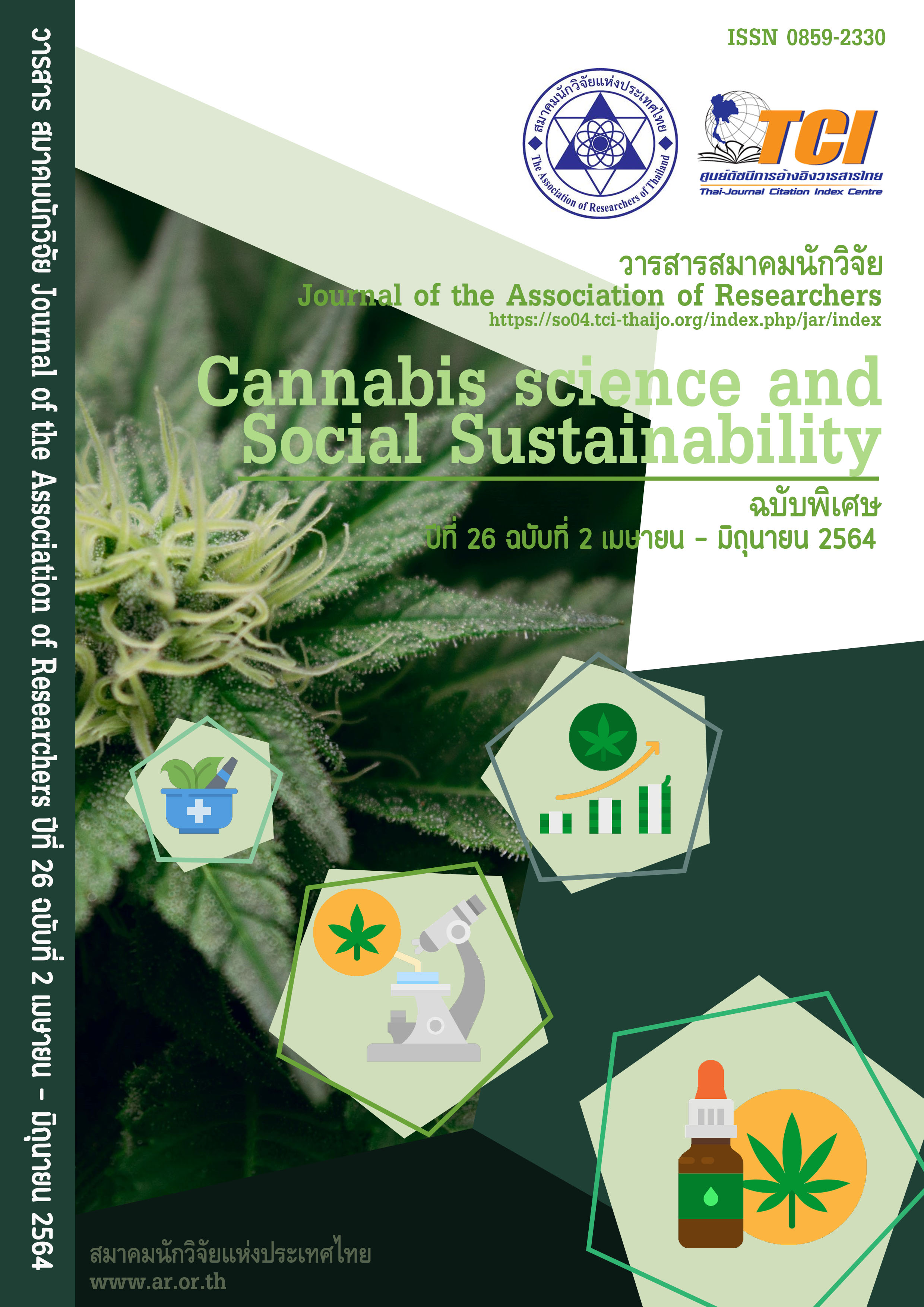Decriminalizing Marijuana: The Science and Social Sustainability Behind the use of Marijuana (Cannabis) in India
Main Article Content
Abstract
Thinking of decriminalization or legalization for medical or recreational use of cannabis (Cannabis sativa spp.) is now legal in many countries across the globe but there is an urgent need to understand how cannabis may impact the environment. Due to the challenges of researching quasi-legal commodities, peer-reviewed studies documenting the environmental impacts of cannabis are limited, slowing the development of policies and agricultural extension guidelines needed to minimize adverse environmental outcomes. The impact and fillip from cannabis cultivation (land-cover change, water use, pesticide use, energy use, and air pollution) and consumption (water pollution) are astounding. It shows how science can contribute to minimize environmental risks and inform the development of regulations for the growing the universal cannabis industry. The NDPS Act does not bargain similarly with ganja, charas, and bhang. As bhang isn't secured under the meaning of cannabis, it is devoured lawfully on a huge scale in northern India. That each kind of cannabis ought to be restricted but the purpose of giving a special case to the therapeutic utilization of cannabis is exceptionally difficult to look for consent, due to its medicinal and logical experimentation and purposes. Ownership of any of the medications sorted illicit by the NDPS Act leads to decade imprisonment. The Narcotics Control Bureau (NCB), indicates that 88 percent of the medication-related seizures in India represent tranquilize clients. Just two percent are traffickers and not the agents or of those running the medication exchange at a larger scale.
Article Details
บทความที่ปรากฏในวารสารนี้ เป็นความรับผิดชอบของผู้เขียน ซึ่งสมาคมนักวิจัยไม่จำเป็นต้องเห็นด้วยเสมอไป การนำเสนอผลงานวิจัยและบทความในวารสารนี้ไปเผยแพร่สามารถกระทำได้ โดยระบุแหล่งอ้างอิงจาก "วารสารสมาคมนักวิจัย"
References
EMCDDA: National Report 2007: Netherlands
Ellgren, Maria; Spano, Sabrina M; Hurd, Yasmin L (2006) ―Adolescent Cannabis Exposure Alters Opiate Intake and Opioid Limbic Neuronal Populations in Adult Rats‖ Neuropsychopharmacology 32 (3): 607–15. The state
government has the power to grant a license for the medical and scientific use of marijuana under sec. Read sec. 8 of the NDPS Act 1985.
Frawley, David (2012). Soma in Yoga and Ayurveda: The Power of Rejuvenation and Immortality. Lotus Press. p. 156. ISBN 0940676214.
Fusar-Poli P, Crippa JA, Bhattacharyya S, et al. (January 2009). ―Distinct effects of delta9- tetrahydrocannabinol, and Cannabidiol on Neural Activation during Emotional Processing.‖ Archives of General Psychiatry 66 (1): 95–105
Indian Hemp Drugs Commission (1894–95). Report of the Indian Hemp Drugs Commission, 1893-94. Shimla and Calcutta.
L. Iversen (Feb 2005). ―Long-term effects of exposure to cannabis.‖ Current Opinion in Pharmacology 5 (1): 69–72 Cannabis could be used to treat obesity-related diseases. Telegraph. 2012-07-08.
Lakshmi T and Rajeshkumar S ―In Vitro Evaluation of Anticariogenic Activity of Acacia Catechu against Selected Microbes‖, International Research Journal of Multidisciplinary Science & Technology, Volume No. 3, Issue No. 3, P.No 20-25, March 2018.
Mills, James H. (2003). Cannabis Britannica: Empire, Trade, and Prohibition, 1800-1928. Oxford: Oxford University Press.
Mills, James H. (2000). Madness, Cannabis, and Colonialism: The 'Native Only' Lunatic Asylums of British India, 1857-1900. New York: St. Martin's Press.
Prain, David (1893). Report on the Cultivation and Use of Ganja. Calcutta: Bengal Secretariat Press.
Ronen, Shamir; Hacker, Daphna (Spring 2001). "Colonialism's Civilizing Mission: The Case of the Indian Hemp Drug Commission". Law & Social Inquiry. 26 (2): 435–461.
Trishala A, Lakshmi T and Rajeshkumar S,― Physicochemical profile of Acacia catechu bark extract –An In vitro study‖, International Research Journal of Multidisciplinary Science & Technology, Volume No. 3, Issue No. 4, P.No 26-30, April 2018
The Atharva Veda, by Ralph T.H. Griffith, 1895 International Journal of Pure and Applied Mathematics Special Issue 252
Tull-Walsh, J.H. (September–December 1894). "On Insanity Produced by the Abuse of Ganja and Other Preparations of Indian Hemp, with Notes of Case Studies". Indian Medical Gazette. 29 (9): 333–34, 369–72, 447–51.
Relative Addictiveness of Drugs.‖The New York Times. Tfy.drugsense.org
R. MacCoun and P. Reuter. 2001. Evaluating alternative cannabis regimes. British Journal of Psychiatry 178: 123-128
United Nations Bulletin on Narcotics, 1957
William Dwight Whitney (1905). Atharva-Veda Saṃhitā, Volume 2. p. 438.


